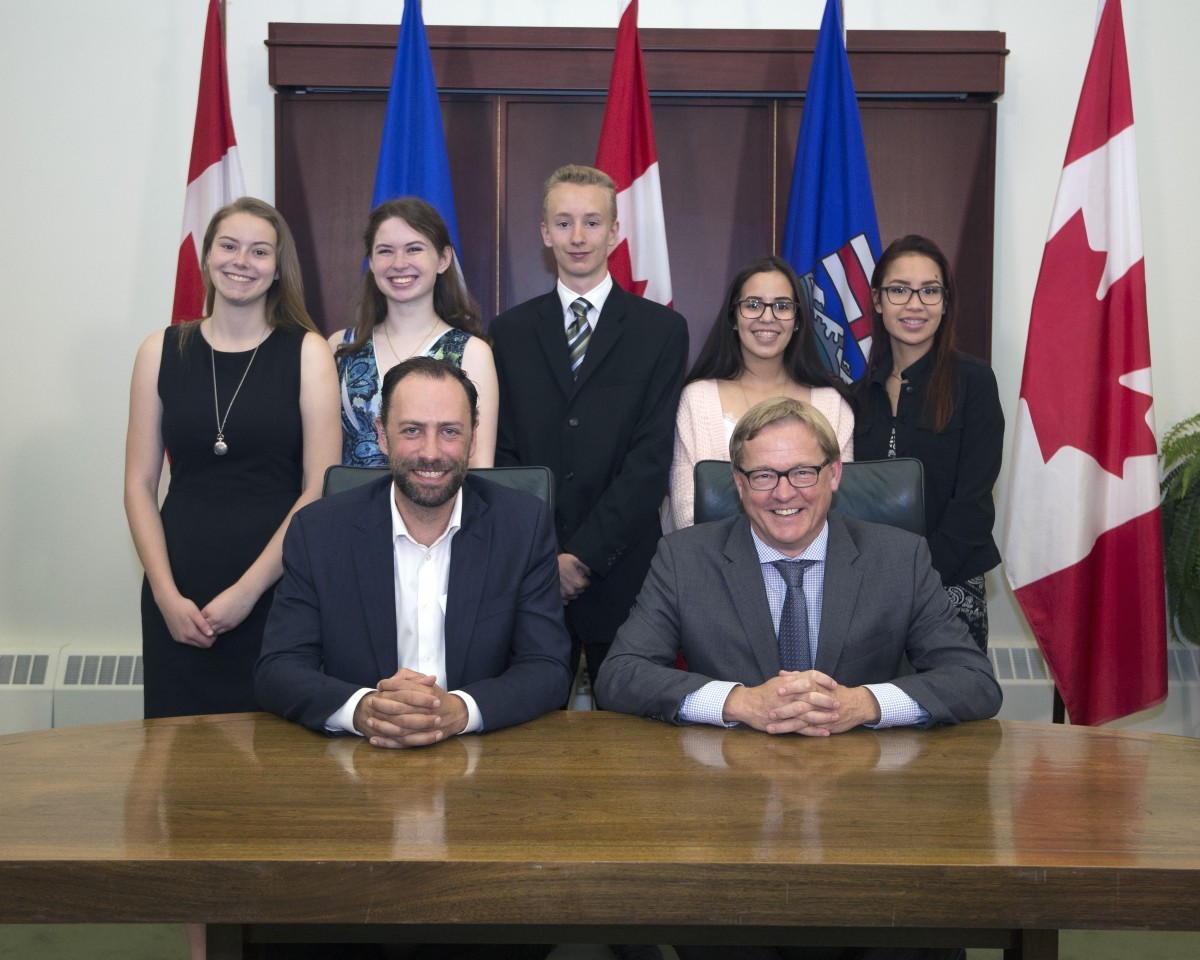
Signatories of the new Alberta education agreement (front l-r, Ry Moran, Director, National Centre for Truth and Reconciliation, University of Manitoba and Alberta Education, Minister David Eggen).
NCTR in action
Alberta K-12 teachers given tools to teach Reconciliation
This morning teachers in Alberta saw Reconciliation in action.
As outlined in the Truth and Reconciliation Commission’s final report, educators have the responsibility to teach their students about the culture, historical perspectives and contributions of First Nations, Métis and Inuit peoples. The Alberta government and teachers in the province confirmed its pledge to this commitment by signing the Joint Commitment to Action. The commitment will ensure all K-12 teachers receive additional training related to the recommendations in the TRC’s report.
Ry Moran, Director of the National Centre for Truth and Reconciliation at the University of Manitoba was on hand for the historical signing.
“All Albertans have a role to play in Reconciliation. The National Centre for Truth and Reconciliation is proud to be a part of this historic commitment, and to provide guidance and support to stakeholders to enhance resources and professional learning opportunities for teachers,” said Moran.
Through the Joint Commitment to Action, stakeholders are committed to working with Indigenous partners to develop resources for teachers who will deliver this new curriculum.
Collaboration from a number of organizations, including Alberta Education, the Alberta Teachers’ Association, The Alberta Association of Deans of Education, the Alberta School Boards Association, the NCTR and others, will help reinforce the lasting impact of Residential Schools and the damage they had on Indigenous peoples and their culture.
“We believe the Joint Commitment to Action is a positive step forward in Alberta’s commitment that all students learn about the history and legacy of residential schools, along with the histories and vibrant cultures of First Nations, Métis and Inuit people,” said David Eggen, the Alberta Minister of Education. We can’t know where we’re going until we know where we’ve been, so this enhancement to curriculum will serve to enrich the knowledge and understanding of current and future generations of Albertans.”
In Manitoba, the Indigenous Education Blueprint was signed on December 18, 2015 by all of Manitoba’s post-secondary institutions and the province’s public school boards. Formally titled the “Manitoba Collaborative Indigenous Education Blueprint for Universities, Colleges and Public School Boards: Making Excellence in Indigenous Education a Priority,” the agreement offered a new way forward for the province, taking action on the TRC’s recommendations.
The National Centre for Truth and Reconciliation is the permanent home for all statements, documents, and other materials gathered by the Truth and Reconciliation Commission. The NCTR is housed at the University of Manitoba and works in partnership with a wide variety of agencies and organizations to advance Truth and Reconciliation in Canada.
The NCTR is a cornerstone of the U of M’s $500-million Front and Centre comprehensive fundraising campaign: the university is committed to ensuring that Manitoba becomes a centre of excellence for Indigenous achievement – leading to increased social, economic, and health outcomes for individuals, communities and all Canadians.






